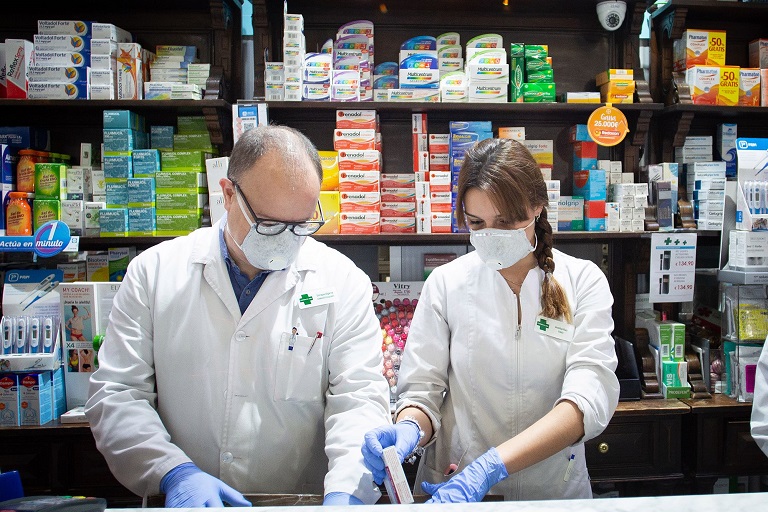The rapidly escalating demand for medications due to COVID-19 is placing increased pressure on hospitals and health systems to appropriately manage drug inventory to support patient care. Essential medications used to alleviate breathing difficulties, relieve pain and sedate coronavirus patients are in short supply. Because of this, healthcare organizations need inventory and shortage management strategies to weather the storm.
Perry Flowers, vice president of medical affairs, enterprise medication management at BP, said during a HIMSS20 digital presentation that drug supply needs are changing quickly as society becomes overwhelmed by high acuity patients. Swabs, IV lines and drugs can be depleted very quickly, so hospitals should be keeping a tight list of those critical supplies.
Historically acceptable levels — or “par” levels — simply won’t be enough to meet the surge in demand, which can be four or five times the norm for certain drugs, Flowers said. That makes it critical for hospitals to leverage regulatory allowances to maximize the drug supplies that are on hand. Beyond-use dating considerations, centralizing sterile compounding and distribution activities, and flexibility allowed by the FDA should all be on the table.
“Essential” medication during the coronavirus means not just medications for direct treatment of the disease, but those drugs for supportive care, such as oral care for ventilator patients. “Items as first-line therapy will be in short supply,” Flowers said. “Those first-line therapies will be exhausted, so going to the (pharmacy and therapeutics) committee with substitutable items will need to be reviewed.”
Direct inventory is decreasing while patients are undergoing therapy for coronavirus, and so an essential task for all caregivers, said Flowers, is recognizing and calculating the current supply burden and when it will be drained. This assessment should be done daily, if not more often,, since forecasting demand can paint a picture of an organization’s ability to purchase second-, third- or even fourth-line agents.
Doina Dumitri, senior director, medical affairs, enterprise medication management at BD, said the role of data analytics is made more critical as drug shortages put more pressure on healthcare organizations.
“Analytics becomes essential for survival during this process,” said Dumitri. “You should track the drug inventory level, but speed of acquisition is also important. Partnering with vendors to automate parts of the process can impact how quickly alternative drugs can be imported for a shorted drug.”
Automating analytics functions allows for rapid par level adjustments, which in turn can ensure a hospital doesn’t stock out of critical drugs, she said. Eventually, many drugs on the short list will require substitutions, and anticipating when that will happen is a key goal in the use of any analytics tool.
With these strategies in place, a good rule of thumb is to prepare at least two alternatives to every critical drug and establish a process for switching back and forth — which is necessary due to the erratic fluctuation of COVID-19-related drug utilization and medication availability.
Hospitals in hot spots see between a 150 and 600% increase in demand for drugs like Propofil, Fentanyl, Hydromorphone, Midazolam and neuromuscular blockers, according to BD’s internal data. For such hospitals, relevant resources include the American Society of Health-System Pharmacists, the Institute for Safe Medicine practice, and group purchasing organizations such as Vizient, Premier and HealthTrust, said Dumitri. “Our patients depend on our care systems to survive this disease,” she said. “Preserving the integrity of these systems is our key goal here.”
Source: https://www.healthcarefinancenews.com/node/140057






























